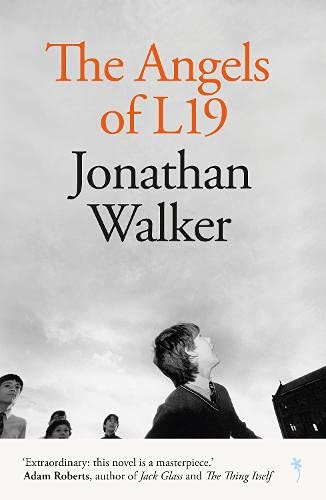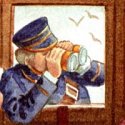I had high hopes for this book – particularly having read the plaudits from the well-respected Adam Roberts, a published author himself. I know Garston in South Liverpool well and I wanted to find out what story Jonathan Walker had to tell about a strict chapel upbringing on Merseyside.

Not a lot happens
I read recently that the problem with literary fiction is that not a lot happens. And this is certainly the case here. The situation evolves excruciatingly slowly. We meet the principal character Robert, a young person struggling within a working-class religious family. We discover that he encounters a range of apparitions or delusions. There is a phenomenon known as the ‘presence’ and there is a girl, Azazel. They are in some way generated by the religious beliefs and may or may not influence events in the narrative.
However, the narrative only shows us either Robert in the daily drudgery of life or it slips into the delusions or visions that he experiences. And there’s little else. Now this could work well for a short story but after 100 pages of this, I gave up and skim-read my way through to the end.
The epilogue throws light on it all
Here I discovered an epilogue. This novel was a PhD creative writing project funded by the Uni of Kent. Adam Roberts was the external examiner. I thought early in my reading on that this idea would make a good novella of, say, 125 pages instead of the full 235. But instead of a university supervision, it needed a strong editor to work with the author cutting it down. It might then have become more meaningful to the general reader.
A disappointing read
The whole experience was very disappointing. There is some very good writing in descriptive passages and there is a good idea in all this. But it fell down on some many fronts. I wondered if it would have made to publication if submitted to a mainstream publishing house. The route to publication has hot-housed in a university and then picked up by a subscription publisher, Weatherglass Books.
Overlong text with a vague time setting
It’s not just the overlong text. I felt from the start as I read about the unappetising food and the genteel but shabby housing that I was reading about a time set in the 1950s or even pre-war and not the specific time period which is 1983. Events are namechecked – e.g., the miner’s strike – which jolted me into remembering the period. Music is also namechecked – the Smiths, New Order – but these seem to be add-ons and there’s no sense of the power and the angst in these songs. So many missed opportunities.
